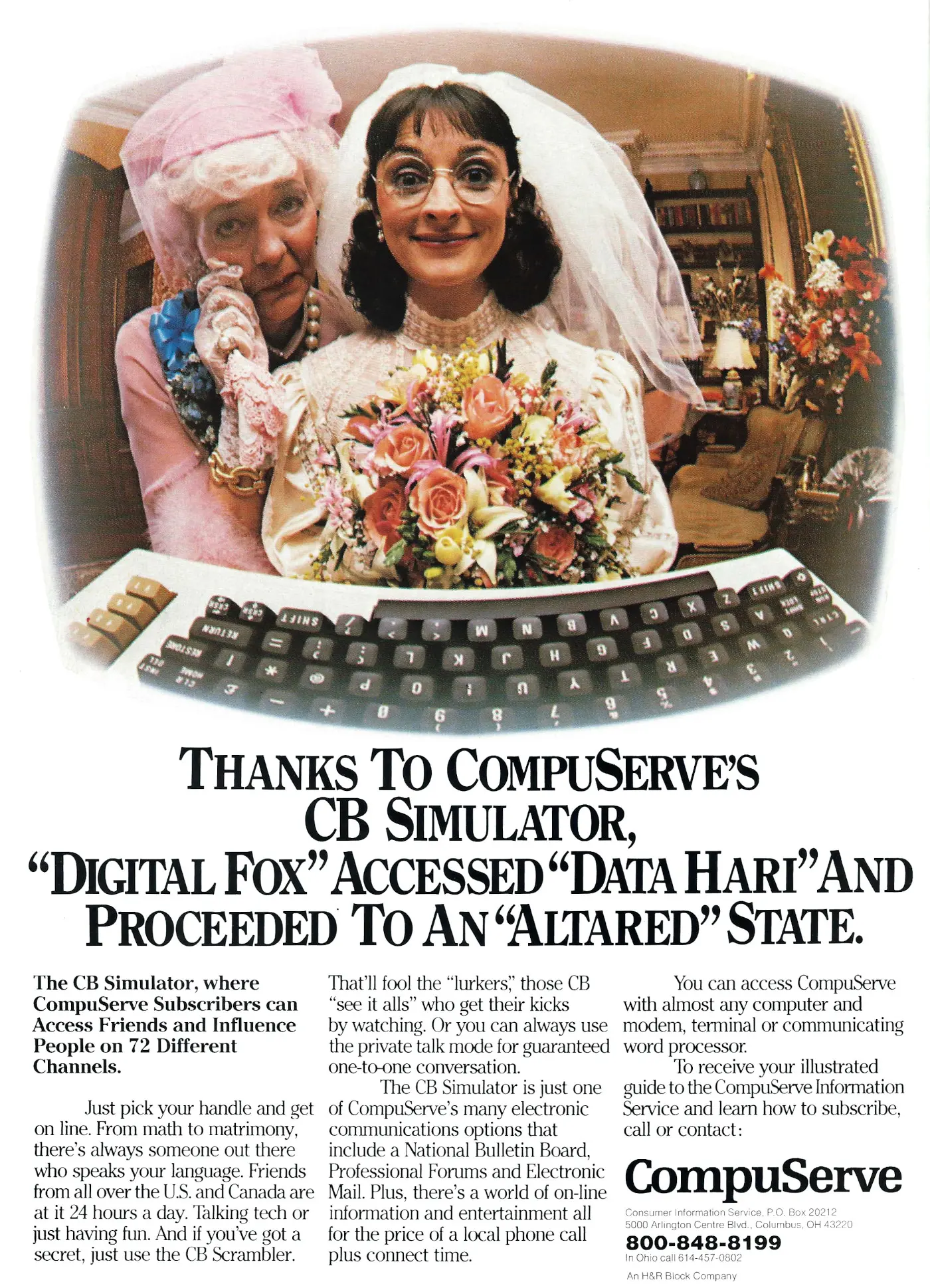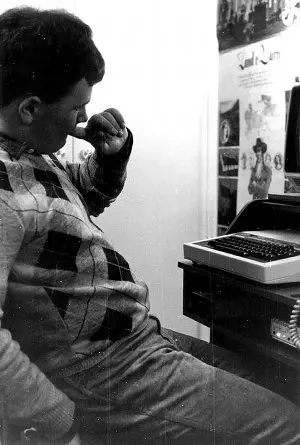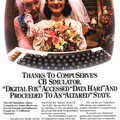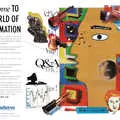CompuServe Advert - August 1984
From Compute's Gazette

Thanks to CompuServe's CB Simulator, 'Digital Fox' Accessed 'Data Hari' and Proceeded to an 'Altared' State
Probably like the 1960's generation liked to think it invented sex, today's "yoof" probably like to assume that they invented "on-line", however it was not so, as shown by this advert for CompuServe - a company actually founded in 1969 as a dial-up service[1].
During the 1980s dial-up remained alive and well in the form of Bulletin Board Services (BBSs) or Viewdata-based technologies like Prestel, especially around the "modem explosion" years of the mid 1980s, following the de-regulation of the UK telecoms market.

School-friend Hamish and Nosher online to Mitcham BBS using a BBC Micro and a Pace Nightingale modem, in 1985CompuServe itself was one of the "big three" ASCII-based dial-up services in the US, the others being The Source and Dow Jones. Between them, they had 400,000 subscribers.
Another service doing well in the US was Comp-U-Card. After years of trying to kick-start teleshopping using micros, despite almost no-one at the time owning computers[2], the company finally reported profits of $800,000 on a turnover of $4 million in 1984[3].
At the time, it was listing 60,000 products that on-line tele-shoppers could get a 25% discount on by buying direct from the factory, a business model that pre-dated Amazon by over a decade.
The advert is interesting in that it clearly shows the fore-runner of Internet Relay Chat, which wouldn't be "invented" until 1988, in the form of an electronic "CB Radio".
Even the idea of a handle (or "nick" in IRC parlance) and the concept of public chat rooms and private channels are well established.
Hard Wired
Only a few years before it had still been fantastically difficult to even connect a computer to the public phone network.
In the UK in 1980, this was still run by nationalised post-and-telecomms monopoly GPO - the General Post Office.
Writing in February 1980's issue of Personal Computer World, David Hebditch recounted an epic letter exchange with the GPO going back to 1979 in which he tried to argue the case for allowing regular users to actually connect their computers to the phone network without "type approval".
The exchange involved lots of entertaining paranoia about how rogue modems might affect the public telephone network, such as in a letter dated 8th June 1979 which said
"If the acoustically-coupled modem stands separately from the personal computer system and the interference problem can be overcome by a suitable filter in the modem I can confirm that it will not be neccessary for the computer system to undergo an evaluation. However, if the acoustic modem does not protect the network adequately or the computer system has an integral modem, an evaluation of the terminal and the modem will be required[4]".
On top of this and several other technical constraints often involving details about exactly what frequencies the equipment in use generated, it was still ultimately required to write to the local Telephone Area (Sales) Office to get their go-ahead first.
The advert shows a Mark 2 VIC-20. The VIC modem (which also worked on the 64) was the first to sell over 1 million units, making Commodore computers at one point the most popular networked computers in the world.
Date created: 25 February 2025
Hint: use left and right cursor keys to navigate between adverts.
Sources
Text and otherwise-uncredited photos © nosher.net 2025. Dollar/GBP conversions, where used, assume $1.50 to £1. "Now" prices are calculated dynamically using average RPI per year.

